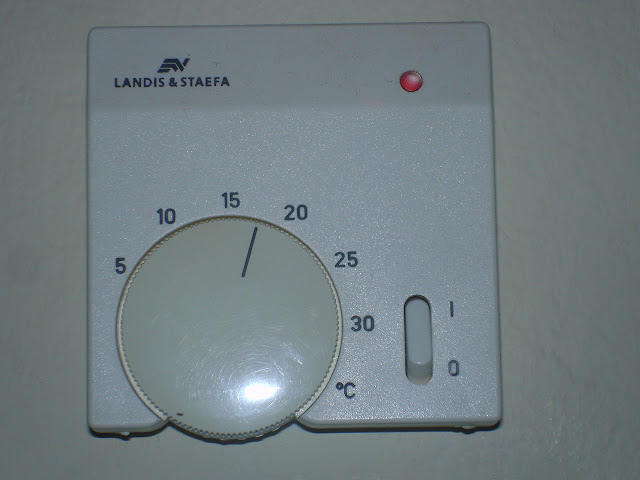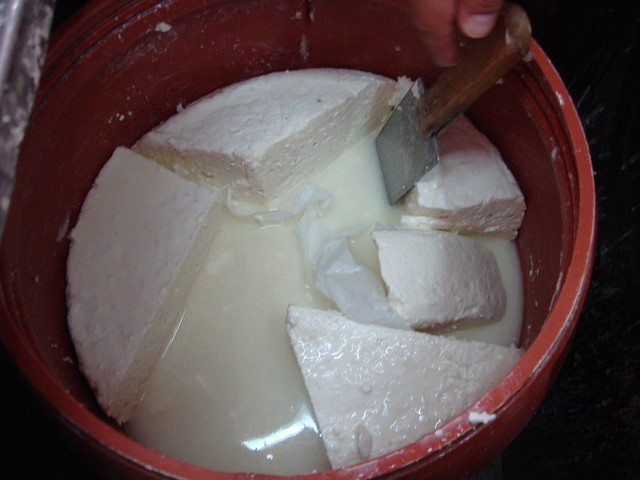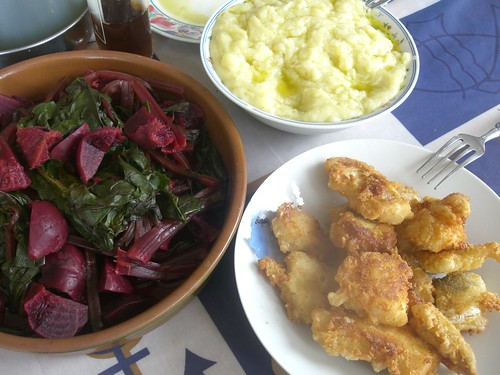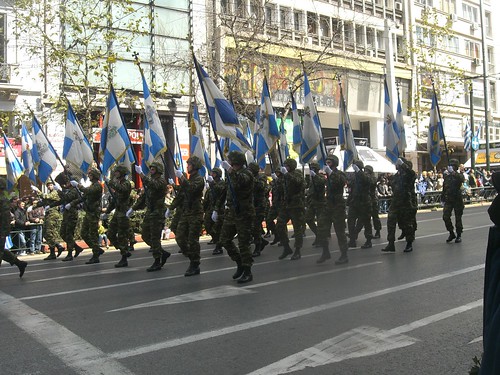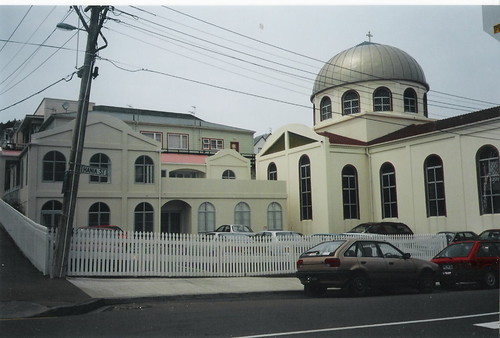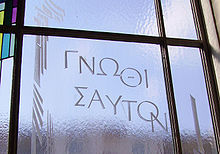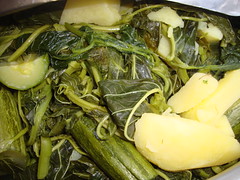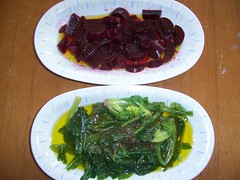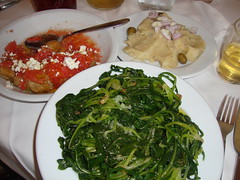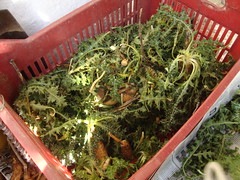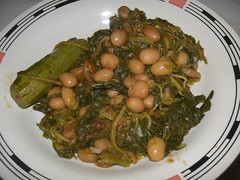A little while ago, my husband did something, which, up until that moment from the beginning of the year, had been considered completely taboo. He pushed the button. For a long time, the button had been turned to the off position, almost a relic of a life that we could no longer afford.
The pushing of buttons is considered to be one of the reasons why people's health has declined, but just because we no longer pushed that particular button, it didn't really have a more healthy effect on us. Not that the button was to blame for our bad health in the first place: for the last three months, the weather could only have been described as freezing cold or pouring with rain, and that didn't have a really good effect on us either. Pushing the button wouldn't have ensured our better health, but it certainly would have helped.

Every day while it was freezing, we (or should I say mainly he) would trot up and down the uncovered staircase which faces directly north, where we could see (and feel) the snow, carrying logs of wood, twigs and branches, with which to kindle a flame and light a log fire in the wood-fired heater. Every morning, the children would argue over whose turn it was to sweep the ashes down the chute and into the drawer, which they then had to take down to the garden and empty it onto the soil (it makes good fertiliser).

Everyone would blame everyone else when the fire went unchecked, and the embers weren't bright and red, so that the fire would start smoking and come close to going out. That was considered a disaster, because someone (again, usually he or someone else under he's orders) had to go back outside in the freezing cold and pouring rain to find some kindling wood with which to light it.

But this system broke down when he got ill with a severe attack of sinus infection together with the oft-occurring pain in the leg, one of those aches and pains that we all get in a different but regular position in our bodies, the result of putting too much strain on one part of the body, often caused by not taking care of yourself as much as you should. One day, I came home to a warm house - and no fire. It turned out that he had pushed the button.
The button had none of the fuss that lighting a fire has. In better days, it would be turned to the on position every evening and everyone would go about their own business while the house seemed to magically warm up by itself. The pushing of the button caused only one minor inconvenience, and that was an argument between the adults in the house about how long the button should remain in the on position. Once it had been decided mutually that it would be turned to the off position indefinitely, our reasons for arguing over our differing opinions simply disappeared. It almost felt like New Year's resolution being kept: "Thous shalt not argue about how cold it is - you both know it's freezing."
 The pushing of the button has so far been kept for emergencies. It's amazing that this winter, despite it being one of the coldest on record in Crete, it was only turned on once. That means that we only had one such emergency. Only my husband took antibiotics this winter. The rest of us simply went through one bad cold and had to stay indoors for a couple of days.
The pushing of the button has so far been kept for emergencies. It's amazing that this winter, despite it being one of the coldest on record in Crete, it was only turned on once. That means that we only had one such emergency. Only my husband took antibiotics this winter. The rest of us simply went through one bad cold and had to stay indoors for a couple of days.
What kept us healthy, generally speaking, could be a number of factors. I can think of three in particular that are often named as factors involved in a healthy life:
The truth is that life would be so much easier if we could just push that button whenever we needed to. Thankfully, we've come to the end of winter, and from now on, we won't be bothering ourselves with neither buttons or firewood. The only thing we will miss of the wood-fired heater is the delicious food that was cooked in it.
©All Rights Reserved/Organically cooked. No part of this blog may be reproduced and/or copied by any means without prior consent from Maria Verivaki.
The pushing of buttons is considered to be one of the reasons why people's health has declined, but just because we no longer pushed that particular button, it didn't really have a more healthy effect on us. Not that the button was to blame for our bad health in the first place: for the last three months, the weather could only have been described as freezing cold or pouring with rain, and that didn't have a really good effect on us either. Pushing the button wouldn't have ensured our better health, but it certainly would have helped.

Every day while it was freezing, we (or should I say mainly he) would trot up and down the uncovered staircase which faces directly north, where we could see (and feel) the snow, carrying logs of wood, twigs and branches, with which to kindle a flame and light a log fire in the wood-fired heater. Every morning, the children would argue over whose turn it was to sweep the ashes down the chute and into the drawer, which they then had to take down to the garden and empty it onto the soil (it makes good fertiliser).

Everyone would blame everyone else when the fire went unchecked, and the embers weren't bright and red, so that the fire would start smoking and come close to going out. That was considered a disaster, because someone (again, usually he or someone else under he's orders) had to go back outside in the freezing cold and pouring rain to find some kindling wood with which to light it.

But this system broke down when he got ill with a severe attack of sinus infection together with the oft-occurring pain in the leg, one of those aches and pains that we all get in a different but regular position in our bodies, the result of putting too much strain on one part of the body, often caused by not taking care of yourself as much as you should. One day, I came home to a warm house - and no fire. It turned out that he had pushed the button.
The button had none of the fuss that lighting a fire has. In better days, it would be turned to the on position every evening and everyone would go about their own business while the house seemed to magically warm up by itself. The pushing of the button caused only one minor inconvenience, and that was an argument between the adults in the house about how long the button should remain in the on position. Once it had been decided mutually that it would be turned to the off position indefinitely, our reasons for arguing over our differing opinions simply disappeared. It almost felt like New Year's resolution being kept: "Thous shalt not argue about how cold it is - you both know it's freezing."
 The pushing of the button has so far been kept for emergencies. It's amazing that this winter, despite it being one of the coldest on record in Crete, it was only turned on once. That means that we only had one such emergency. Only my husband took antibiotics this winter. The rest of us simply went through one bad cold and had to stay indoors for a couple of days.
The pushing of the button has so far been kept for emergencies. It's amazing that this winter, despite it being one of the coldest on record in Crete, it was only turned on once. That means that we only had one such emergency. Only my husband took antibiotics this winter. The rest of us simply went through one bad cold and had to stay indoors for a couple of days.What kept us healthy, generally speaking, could be a number of factors. I can think of three in particular that are often named as factors involved in a healthy life:
- good nourishment: a lot of our food is carefully selected, especially what we don't produce ourselves;
- a physically and psychologically safe environment: we generally live peacefully, with only the odd television news report raising our stress level;
- living in an unpolluted area: apart from the low levels of chemicals in our food supply, we also live in a chemical-free environment. Now that petrol is expensive (it's reached the €1.9/litre mark), even joyriders have reduced their trips, so the neighbourhood (away from the main street) is very quiet;
- possibly an over-abundance of extra virgin olive oil in our daily diet. Olive oil is associated with longevity and therefore good health, which is why it makes me think that our over-use of the substance has protected us from winter's drawbacks, but at the same time, I am aware that the octogenarians of Okinawa have probably never used olive oil in their food, and they seem to live as long as the Ikarians; it all depends on which viewpoint you take, I suppose.
The truth is that life would be so much easier if we could just push that button whenever we needed to. Thankfully, we've come to the end of winter, and from now on, we won't be bothering ourselves with neither buttons or firewood. The only thing we will miss of the wood-fired heater is the delicious food that was cooked in it.
©All Rights Reserved/Organically cooked. No part of this blog may be reproduced and/or copied by any means without prior consent from Maria Verivaki.
